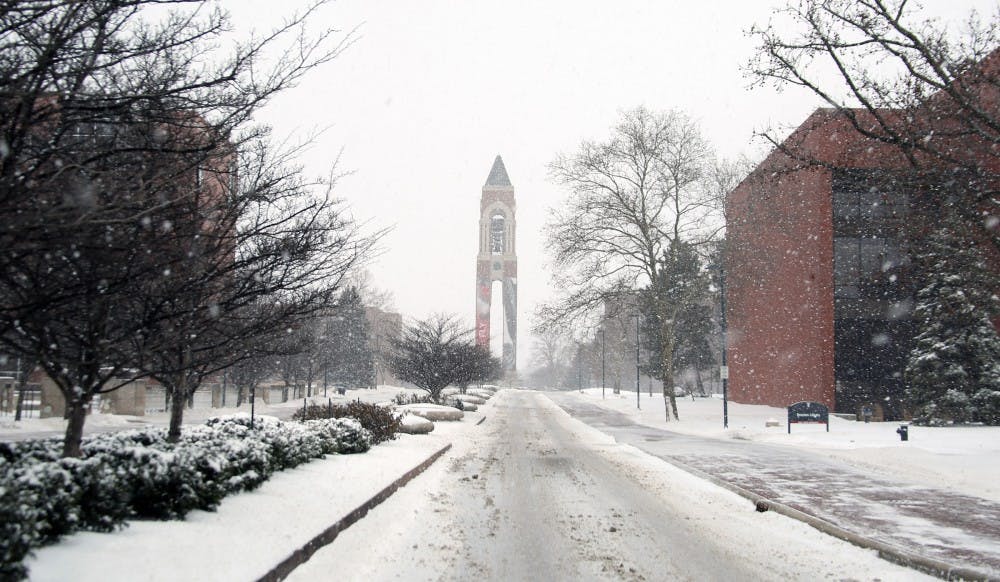While some may be excited about the gender-inclusive housing pilot program coming to Ball State this year, not all members of the LGBTQ community are convinced it will be successful.
The pilot program was announced Jan. 23 by Alan Hargrave, director of Housing and Student Life, in a campus-wide email.
According to the email, beginning in Fall 2018, 30 rooms will be designated for the pilot program. The rooms will be spread across several residence halls with “bathroom privacy,” including Johnson Complex A and B, Kinghorn Hall, Park Hall and Studebaker East.
The foundation of the gender-inclusive pilot program at Ball State was laid out in legislation passed by the Student Government Association and the Residence Hall Association in February 2017.
Several public universities in Indiana already have gender-inclusive living options for students, including Indiana University Bloomington, Indiana University-Purdue University Indianapolis and Purdue University. Indiana University also has a LGBTQ resource center for students.
Meara Delaney, a senior social work major who identifies as agender, said that although they would have benefited from a gender-inclusive living situation, they don’t believe the program is a “cure all.”
“The idea of separating a group of people, and like really emphasizing that idea of them being 'other' is kind of dangerous," Delaney said. "It’s important to have safe spaces, but I worry about the way that people who aren’t in the safe space will look at it, and what they’ll think about it.”
Delaney is not the only member of the LGBTQ community with concerns about the pilot program.
Ben Slightom, a senior architecture major at Ball State, opted to live alone in the residence halls for three years, because he said he didn’t feel comfortable living with someone he didn’t know well.
Although Slightom said he is skeptical of the pilot program, he said it could have been a positive experience for him when he was in the dorms.
“I would have had more options when it came to choosing who I wanted to live with and how I felt comfortable. I think I probably wouldn’t have lived alone for three years if I had had the option to choose someone that I felt truly comfortable with,” Slightom said.
Like Delaney, Slightom said he fears how people at Ball State may view the program.
“It might be thought about more as a living learning community, and I personally think that that mentality is also wrong, where we need to sequester and segregate these students into their own community,” Slightom said. "I think for a lot of these students, the choice of who they live with is not one about the greater social group that they want to identify with. It’s about personally who do they feel comfortably living with.”
Slightom said he hopes the program can bring indifference about notions of gender and living situations.
“If I’m here, if I’m part of Ball State and making a positive impact … what does it make a difference to you who I’m living with? This is a choice not about stating who I am. It’s about making sure that when I come home at night I feel comfortable being there,” Slightom said.
The pilot program will be evaluated after the Spring 2019 semester to see if it should be implemented during future academic years.
Contact Kelsey Dickeson with comments at kmdickeson@bsu.edu.





